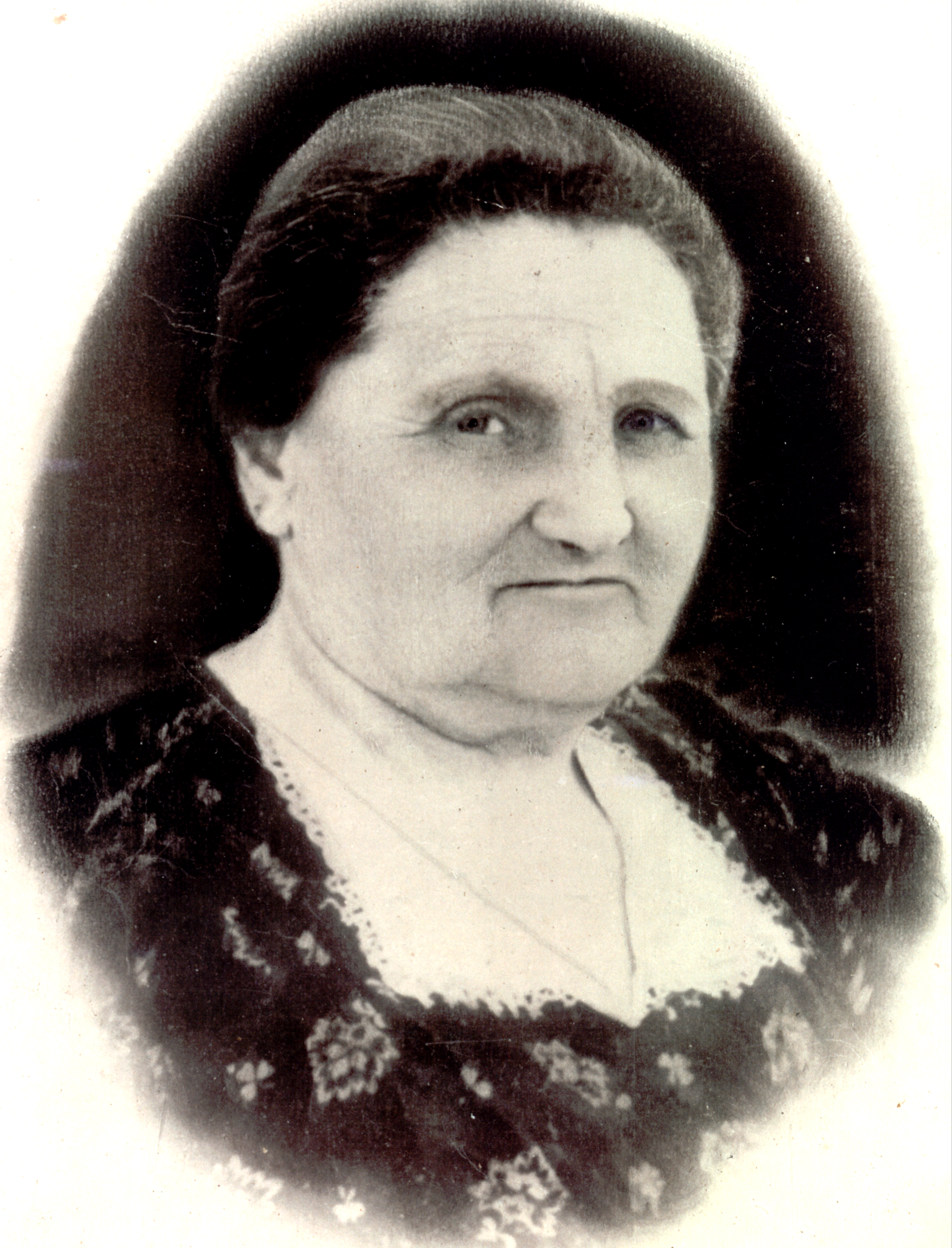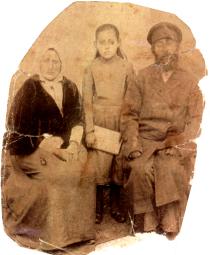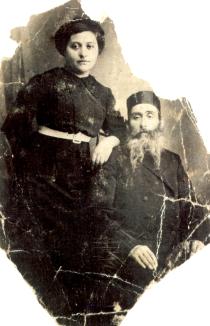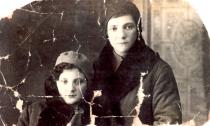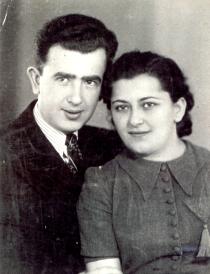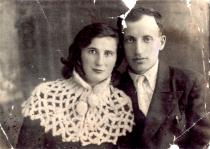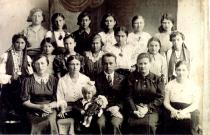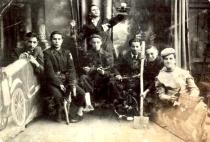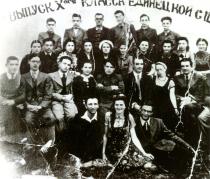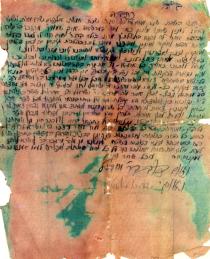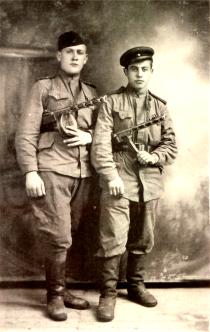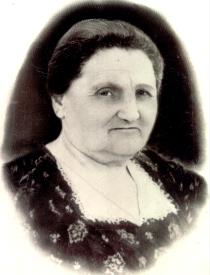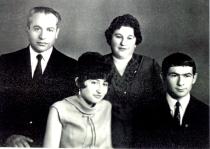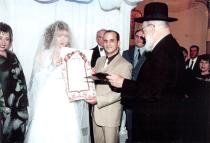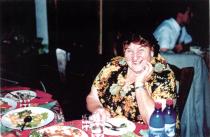This is my mother Lisa Gutelmacher, nee Fainshtein. This photo was taken on the occasion of my arrival to Bershad in 1946. It was given to me and my husband.
My mother Lisa Gutelmacher (nee Fainshtein), born in 1900, was raised in her grandmother's home. Her grandmother was a widow by then. She adored my mother and feeling sorry for the orphan indulged in all her whims and fancies. My mother's grandmother must have been quite wealthy since she managed to give my mother a good education. She finished Russian and Jewish grammar schools in Layzhin. She had fluent Russian and knew mathematics. She was a well-educated woman for her time. My great grandmother's family was religious and my mother observed Jewish traditions her whole life. She knew Hebrew and could read the Torah and Talmud that was rare with women of her time.
My parents got to know each other through a matchmaker that was a customary thing with Jewish families. They got married in 1924. It goes without saying that they had a Jewish wedding with a chuppah. There were many guests at their wedding in Bershad. The family was big. On the next day my parents had a civil ceremony in a registry office. They lived in grandmother Riva's house few months until their parents bought them a house.
In 1932 my mother went to work. She became an accountant at the mill. My father was recruited to the army in 1939 and participated in the campaign of annexation of some Polish regions to Ukraine and in the Finnish War. I became my mother's support and help. My mother left for work early to arrive there on time: at that time one could be sent to court even for being 5 minutes late. My mother left me a list of chores. Our family was already bigger; my sister Genia was born in 1935 and in 1938 - my brother named David after my father's father who had passed away. I had to take him to nursery school and her to kindergarten, cook dinner, buy bread and go to school. On 21 June 1941 we received from my father the telegram where he told us that he was demobilized and was on his way home. He sent this cable from a railroad station. On Sunday 22 June 1941 my mother woke me up saying ‘Daughter, the war began’. My father never reached home. He returned to his military unit.
My mother refused to evacuate. She said we didn't have money and that it was too hard for her to leave with five children. My mother remembered Germans from World War I when they were polite and she decided they could not change dramatically. Later she regretted much that she didn't evacuate. During air raids we went to the basement. Our mother made some kind of shelter in the basement: the old door was nailed up covered with wood and rags. Mother also somehow pulled heavy boulder stones to camouflage the door. There was only a narrow opening in the basement through which we could squeeze into the shelter. This shelter saved us many times during occupation.
Germans came to Bershad in late July 1941. We were taken to the ghetto: few streets were fenced with barbed wire. We stayed in our house. Life behind bars was terrible. In few weeks Romanian troops took command in the ghetto: our ghetto became a part of Transnistria. Life behind bars was terrible. We were not allowed to leave the ghetto: there were policemen guarding the gate. My mother always applied some smelly herbs to keep Germans and policemen away. They raped young girls.
In 1943 fascists were retreating. We were happy about the victorious advance of the Soviet army, but our situation in the ghetto was getting worse with each coming day. Fascists replaced Romanians in the ghetto and started preparation to liquidation of the ghetto, fascists decided to flood us. They were going to blast bridges and then the wave would flood our town. Partisans informed us on German plans and we were awaiting death. At night of 13 to 14 March we were at home. The ghetto was wide-awake. People were saying 'good bye' to one another awaiting death. At 5 am we heard shooting and then we heard 'Folks, come out. You are safe!' It was a whirlpool. People were jumping out of the windows. Those were partisans. I saw a woman die of infarction from joy when she ran to hug a partisan. Soviet troops came in about an hour. We were happy and couldn't believe we survived.
My mother and brothers lived in our half-ruined house. They were very poor. It took her a long time to obtain approval for allowing her a pension for the children to be paid for their father who had perished at the front. It was a miserable pension. There was no work, the mill was ruined. My mother wrote letters and requests for other people and they paid her for this work. I supported my mother sending her money and parcels. We visited her once a year and stayed few weeks. In 1973, when we received a big apartment, I took my mother to live with us. She died in 1974. She was buried at the town cemetery.
